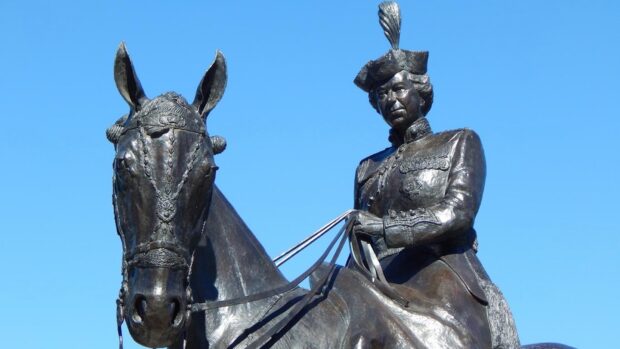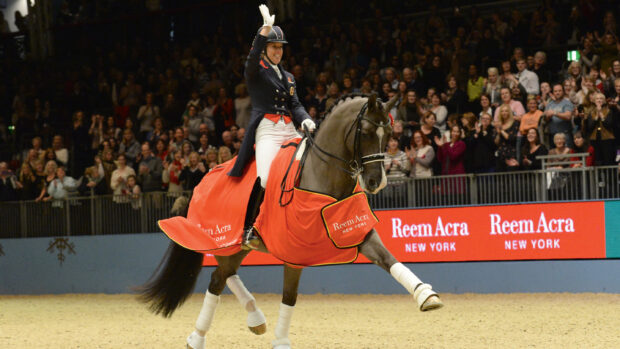A dressage horse’s failed dope test was found to have been caused by a groom’s repeated urination in the stable.
The FEI Tribunal said it is concerned about the number of such cases, where a human who has been taking a certain substance urinates in a stable, causing a positive dope test.
The Tribunal ruled that Italian dressage rider Pierluigi Sangiorgi, the person responsible (PR), bore no fault or negligence for Gelo Delle Schiave’s positive sample, taken at a CDI-W show in Slovenia in May 2019.
A sample taken from the 13-year-old gelding was found to contain aripiprazole, an antipsychotic used in the treatment of schizophrenia and bipolar disorders in humans.
The rider told the Tribunal panel that on investigation, he found his groom had been prescribed a medication called abilify to treat his “severe depression disorder”, which was confirmed by the groom’s doctor. The groom also admitted that he had “repeatedly fulfilled his physiological needs (urine) inside the box of the horse from the moment he arrived at the event”.
The Tribunal report reads: “In referring to the expert report, the PR argued that the result of the commissioned study by his expert ascertained with reasonable sufficiency beyond any possible doubt, that the active substance could have entered the horse’s system through the ingestion of straw from the litter contaminated with the groom’s urine.
“Urinating on the straw bedding of the horse for several days, several times a day, had led, without any doubt, to an involuntary contamination of the horse. This was also compatible with the very low level of substance found in the sample.”
The FEI was satisfied the rider had established, “on a balance of probabilities”, how the substance had entered the horse’s system.
The FEI told the panel it has had “a few previous anti-doping rule violations resulting from the horse’s bedding being contaminated with human medications via human urination, which ultimately resulted in the finding that the PR bore no fault or negligence for the rule violation”.
“In the FEI’s view, although the PR’s support personnel should have been aware of the risk of human to horse cross-contamination through urination on the horse’s bedding, the PR in the present case could not reasonably have known that the groom was on medication that could lead to the presence of the prohibited substance in the horse’s system,” the Tribunal report states.
The Tribunal agreed, finding the rider had no fault for the test.
Continues below…

Wee warning: horse fails dope test after stable lad caught short
Authorities have warned of the dangers of urinating in stables after the positive test

Driver urinating in horsebox caused positive dope test: showjumper’s suspension lifted
The European team bronze medal-winning showjumper’s horse had tested positive for a metabolite of tramadol, at a CSI3* event in

Subscribe to Horse & Hound magazine today – and enjoy unlimited website access all year round
But the report adds: “The Tribunal is however concerned regarding the number of reoccurring cases where urinating in horses’ boxes led to cross-contamination of those horses.
“In the view of the Tribunal, those are clearly cases which could easily be avoided if all stakeholders in equestrian sport were properly educated about the risks of this kind of contamination. The Tribunal therefore strongly encourages the FEI, as well as those expected to educate others, for example riders who are supposed to educate their support personnel, to re-enforce their information and education duties.”
The horse was disqualified from the show, but no ban or fine was imposed on the rider.
Horse & Hound magazine, out every Thursday, is packed with all the latest news and reports, as well as interviews, specials, nostalgia, vet and training advice. Find how you can enjoy the magazine delivered to your door every week, plus options to upgrade to access our H&H Plus online service which brings you breaking news as it happens as well as other benefits.




